How Teletherapy is Changing OCD and Anxiety Treatment in Arizona
Teletherapy has revolutionized mental health care, offering new hope for those struggling with OCD (Obsessive-Compulsive Disorder) and anxiety in Arizona. With the rise of remote counseling, more people can access expert treatment without leaving their homes. At BrainBody Wellness Counseling in Scottsdale, AZ, we specialize in teletherapy using proven methods like Exposure and Response Prevention (ERP), Acceptance and Commitment Therapy (ACT), and Integrative Cognitive Behavioral Therapy (I-CBT) to help clients achieve lasting relief.
What Is Teletherapy and How Does It Work?
Teletherapy is therapy conducted remotely via secure video, phone, or messaging platforms. It removes common barriers like travel time and scheduling conflicts, making it easier for clients—especially those with OCD and anxiety—to engage consistently in treatment. Our licensed therapists at BrainBody Wellness Counseling guide you through personalized sessions designed to fit your needs, all from the comfort and privacy of your home.
Teletherapy for OCD and anxiety uses online tools and personalized care to make it easier to get help. It removes problems like traveling and busy schedules, helping people stick with treatment and feel better for the long run (SAMHSA, 2021).
Why Is Teletherapy Effective for OCD and Anxiety Treatment?
Teletherapy provides flexible access to evidence-based therapies that are proven to reduce OCD and anxiety symptoms. At BrainBody Wellness Counseling, we utilize:
Exposure and Response Prevention (ERP): The gold standard for OCD treatment, ERP helps you face feared thoughts and situations without performing compulsions, gradually reducing anxiety.
Acceptance and Commitment Therapy (ACT): This modality teaches mindfulness and acceptance strategies to help you live a meaningful life despite anxiety or obsessive thoughts.
Integrative Cognitive Behavioral Therapy (I-CBT): Combining CBT techniques with personalized approaches, I-CBT addresses the cognitive and emotional patterns that sustain anxiety and OCD symptoms.
These therapies adapt well to teletherapy, allowing us to deliver effective, supportive care no matter where you are in Arizona.
Commonly Asked Questions About Teletherapy for OCD and Anxiety:
Can Teletherapy Provide the Same Quality of Care as In-Person Therapy?
Absolutely. Studies confirm teletherapy’s effectiveness, especially when delivered by experienced therapists specializing in OCD and anxiety. Our clinicians are trained to tailor ERP, ACT, and I-CBT to online formats, ensuring comprehensive and compassionate care.
Is Teletherapy Confidential and Secure?
Yes. We use HIPAA-compliant platforms to protect your privacy and ensure all sessions are confidential. Your safety and comfort are our highest priorities.
What Are the Benefits of Teletherapy for OCD and Anxiety in Arizona?
Convenience: Access expert therapy without commuting.
Comfort: Participate in sessions from your safe, familiar environment.
Consistency: Easier scheduling means better adherence and progress.
Accessibility: Specialized treatment available statewide, including rural areas.
How Do I Start Teletherapy at BrainBody Wellness Counseling?
Simply schedule a free consultation to discuss your goals and treatment options. We offer flexible appointments and accept many insurance plans, including BCBS.
Why Choose BrainBody Wellness Counseling for Teletherapy in Scottsdale, AZ?
We combine clinical expertise in OCD and anxiety with a warm, client-centered approach. Our therapists are highly trained in ERP, ACT, and I-CBT and skilled in delivering these therapies through telehealth. We’re committed to helping you overcome challenges and build lasting resilience with personalized care tailored to your journey.
Take the First Step Toward Healing Today
If you or someone you love is dealing with OCD or anxiety, teletherapy at BrainBody Wellness Counseling offers effective, convenient treatment in Arizona. Contact us now to schedule your free consultation and start your path to recovery.
References
Andersson, G., & Titov, N. (2014). Advantages and limitations of internet-based interventions for common mental disorders. World Psychiatry, 13(1), 4-11. https://doi.org/10.1002/wps.20083
Farrell, N. R., Deacon, B. J., Kemp, J. J., & Dixon, L. J. (2016). The empirical status of exposure therapy for anxiety disorders: A systematic review of meta-analyses. Clinical Psychology Review, 49, 52-60. https://doi.org/10.1016/j.cpr.2016.06.003
Twohig, M. P., & Levin, M. E. (2017). Acceptance and Commitment Therapy as a Treatment for Anxiety and OCD. Psychology Research and Behavior Management, 10, 123-136. https://doi.org/10.2147/PRBM.S81777
Wootton, B. M. (2016). Remote cognitive-behavior therapy for obsessive-compulsive symptoms: A meta-analysis. Clinical Psychology Review, 43, 103-113. https://doi.org/10.1016/j.cpr.2015.11.006
National Institute of Mental Health. (2022). Obsessive-Compulsive Disorder. https://www.nimh.nih.gov/health/topics/obsessive-compulsive-disorder-ocd
Substance Abuse and Mental Health Services Administration (SAMHSA). (2021). Telehealth Services. https://www.samhsa.gov/telehealth

